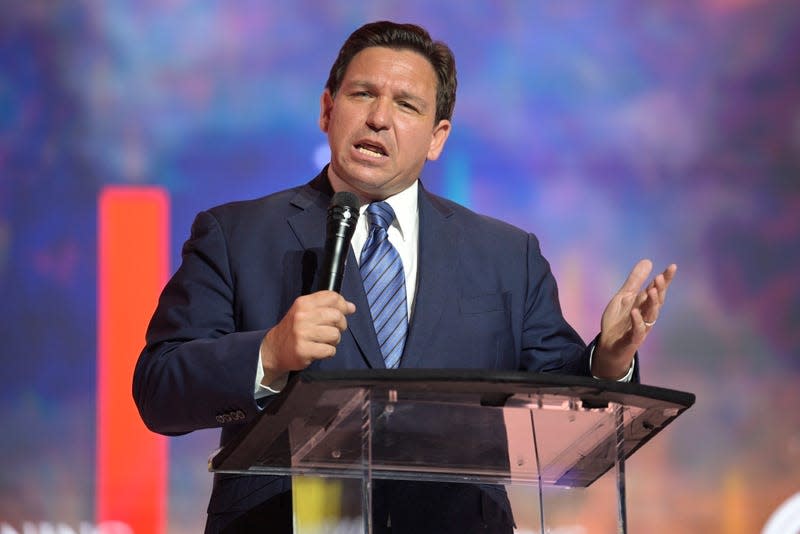A Florida Judge Claps back on Ron DeSantis' Election Police Scam

- Oops!Something went wrong.Please try again later.
Florida Gov. Ron DeSantis’ new “election police” force was always a dangerous farce, his attempt at using the bogus specter of election fraud—which doesn’t exist at scale anywhere in the country—to find a taxpayer-funded method of voter intimidation.
And that scheme looked like it was working perfectly last week, when videos emerged of cops arresting people who had been told they were voting legally, on charges of voter fraud. A total of 20 people were arrested in the crackdown, and even the cops who were sent out to make the collars seemed to not understand why they were there. But the real purpose was clear: to intimidate anyone DeSantis disfavored from voting.
Read more
But if the moral arc of history bends toward justice, even in Florida, it may have curved just a bit in the right direction on Friday, when a judge in Miami tossed charges against one of the 20 arrestees, Robert Lee Wood, on the grounds that the state’s prosecutor didn’t have the jurisdiction to even bring the case.
From Florida 11th Judicial Circuit Judge Milton Hirsch’s ruling:
“It is an old truth that all politics is local. OSP seeks to stand that old truth on its head. It seeks, by its own frank admission, authority to prosecute ‘all criminal cases dealing with voter registration and elections,’ wherever in Florida they may be, however local they may be...That plenary power — the power to invigilate all Florida elections, whether federal, state, or municipal — is not consigned to OSP by § 16.56.”
I’ll put the legalese into layman’s terms for you: Dear Gov. DeSantis, this ain’t it. The state’s argument that the Florida Office of the Statewide Prosecutor has jurisdiction over any election violation is bogus, because those crimes—if there were any—would have been local offenses, which would be the business of local prosecutors.
Which means there’s a chance that DeSantis’ clear attempt at intimidating people from voting may have met its end, just like that, because there’s no guarantee that local prosecutors have any interest in expending the resources to go after people who cast ballots after they had been told by the state that they were allowed to vote. Local prosecutors have the burden of going after, y’know, real crimes, like rape, murder, robberies and gun violence—all the things alleged tough-on-crime governors like DeSantis claim they want prosecuted to the fullest extent of the law.
Of course, DeSantis has already said he’ll appeal the decision, which means a battle over the fate of his policy before a higher court, if not several. In the meantime, it’s not clear what happens to the other 19 defendants, but so far, so good.
More from The Root
Sign up for The Root's Newsletter. For the latest news, Facebook, Twitter and Instagram.

